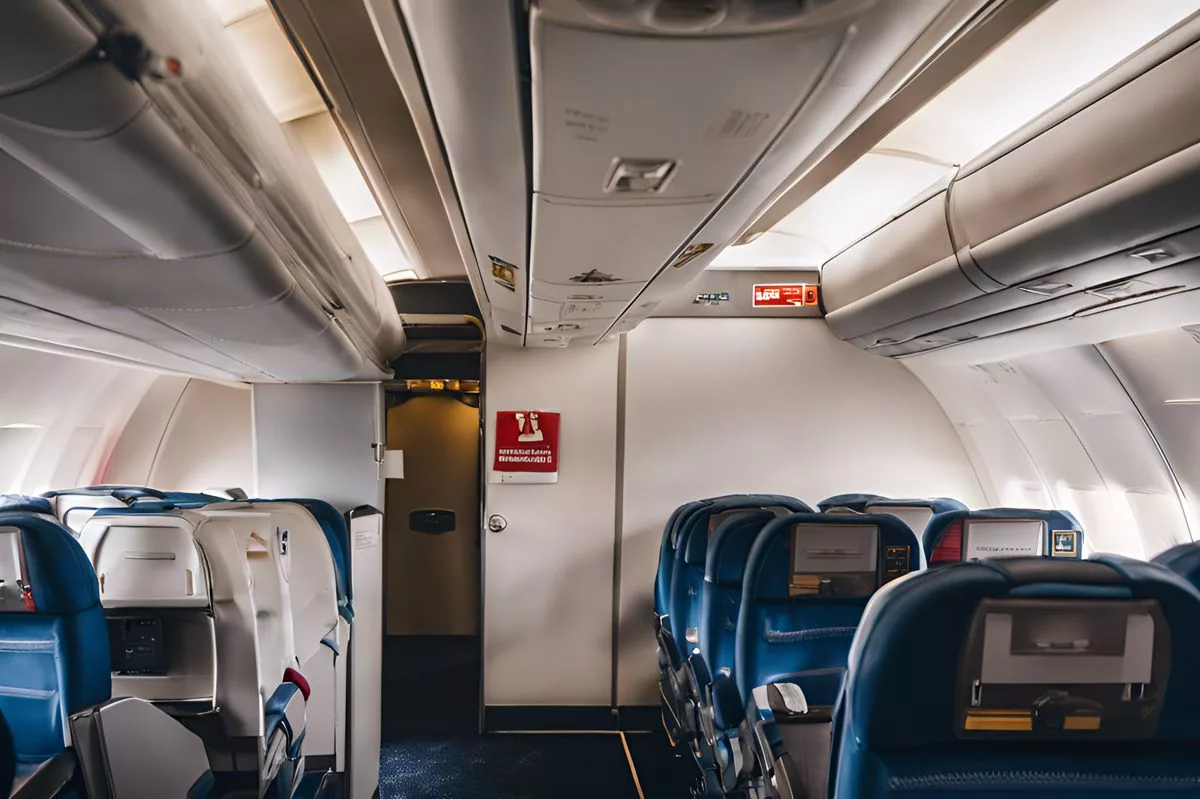South African airline, CemAir, has implemented a new rule where there are no bathrooms available during flights, even in emergencies. This policy reflects the airline’s larger strategic approach aimed at optimizing operational efficiency. While passengers on smaller flights must now strategize their lavatory needs in advance, the policy has garnered controversy, highlighting the balance airlines must strike between operational efficiency and passenger satisfaction.
CemAir, a South African airline, has implemented a surprising new rule: no bathrooms available during flights. While this policy may seem peculiar, it reflects the airline’s larger strategic approach aimed at optimizing operational efficiency. Passengers on smaller flights are now compelled to strategize their lavatory needs in advance, and the policy remains rigid even in emergencies. CemAir’s unorthodox approach highlights the delicate balance airlines must strike between operational efficiency and passenger satisfaction.
A Striking Policy Shift
In an era where ease and accessibility are highly sought after, one South African airline has taken a different path, placing operational efficiency above the comfort of its passengers. CemAir, a popular commercial airline known for its 26-aircraft fleet operating from OR Tambo airport, has thrown a curveball with a surprising new rule: no bathrooms available during flights.
At first, this unexpected policy from CemAir seems peculiar. However, it reflects a larger strategic approach designed to optimize its operational success. This unorthodox decision has stirred considerable debate. Passengers on the airline’s smaller flights, which normally last approximately two hours, are now compelled to strategize their lavatory needs in advance.
The Operational Reality
CemAir’s flights primarily serve tourists drawn to Africa’s captivating safari destinations. The airline’s small aircrafts, designed to house two crew members and 19 passengers, regularly make the journey from South Africa to Botswana. The limited size of these planes has made the lack of onboard restroom facilities a reality.
The CEO of CemAir, Miles van der Molen, has openly discussed his perspective on this issue. He underlined the effectiveness of encouraging passengers to use airport restrooms before boarding the plane. However, he is also cognizant of the uncomfortable situations arising from this policy. Men often resort to using bottles as temporary toilets, while women find the absence of a toilet distressing and undignified.
Nevertheless, van der Molen reaffirms that passengers who choose not to adhere to this policy are entitled to a full refund. Interestingly, the policy remains rigid even in emergencies. For instance, the airline remains firm on its stance against opening the restroom while the plane is in-flight.
Controversy and Backlash
CemAir garnered considerable controversy when MTV Base Presenter Shamiso Mosaka was ejected from a flight for allegedly using indecent language during a phone call. Mosaka defended herself, claiming, “I maintained my composure and was respectful to everyone on board.” However, CemAir issued a statement alleging that Mosaka became unruly and violated onboard safety protocols. Consequently, the airline felt compelled to involve the South African Police Service.
CemAir’s no-toilet rule has understandably irritated many. The unusual policy puts the airline in a tricky position, navigating between the demands of operational efficiency and the frustration of its passengers. The long-term impact of this bold yet contentious strategy is anyone’s guess for now. However, those planning a trip on a CemAir flight should be prepared for a potentially uncomfortable journey.
In conclusion, CemAir’s policy is a clear reminder of the delicate balance airlines must strike between operational efficiency and passenger satisfaction. Their unorthodox approach might make for an uncomfortable passenger experience, but the airline believes it is a necessary sacrifice for optimal performance. It remains to be seen how this policy will shape the future of the company and the industry as a whole.
What is CemAir’s new rule regarding onboard restrooms?
CemAir has implemented a new rule where there are no bathrooms available during flights, even in emergencies.
Why did CemAir implement this policy?
This policy reflects the airline’s larger strategic approach aimed at optimizing operational efficiency.
How are passengers affected by this policy?
Passengers on smaller flights are now compelled to strategize their lavatory needs in advance, and the policy remains rigid even in emergencies.
What is the CEO of CemAir’s perspective on this policy?
The CEO of CemAir, Miles van der Molen, underlined the effectiveness of encouraging passengers to use airport restrooms before boarding the plane. However, he is also cognizant of the uncomfortable situations arising from this policy.
Has CemAir faced any controversy related to this policy?
CemAir garnered considerable controversy when MTV Base Presenter Shamiso Mosaka was ejected from a flight for allegedly using indecent language during a phone call.
Can passengers who disagree with this policy get a refund?
Passengers who choose not to adhere to this policy are entitled to a full refund.









